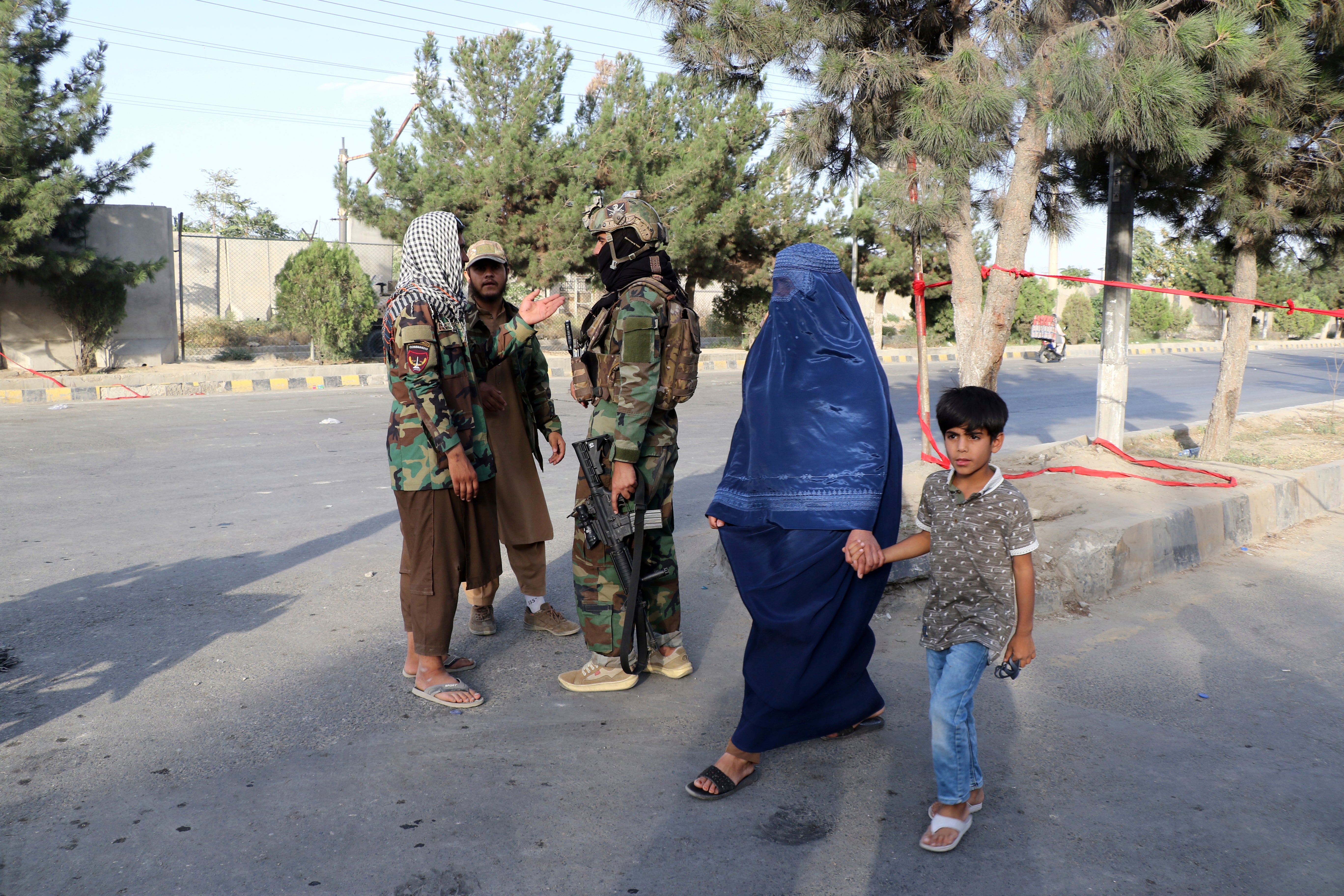Afghans face hunger crisis, adding to Taliban’s challenges
In the wake of the U.S. pullout, many Afghans are anxiously waiting to see how the Taliban will rule

Your support helps us to tell the story
From reproductive rights to climate change to Big Tech, The Independent is on the ground when the story is developing. Whether it's investigating the financials of Elon Musk's pro-Trump PAC or producing our latest documentary, 'The A Word', which shines a light on the American women fighting for reproductive rights, we know how important it is to parse out the facts from the messaging.
At such a critical moment in US history, we need reporters on the ground. Your donation allows us to keep sending journalists to speak to both sides of the story.
The Independent is trusted by Americans across the entire political spectrum. And unlike many other quality news outlets, we choose not to lock Americans out of our reporting and analysis with paywalls. We believe quality journalism should be available to everyone, paid for by those who can afford it.
Your support makes all the difference.Food stocks in Afghanistan could run out this month, a senior U.N. official warned Wednesday, threatening to add a hunger crisis to the challenges facing the country’s new Taliban rulers as they endeavour to restore stability after decades of war.
About one third of the country’s population of 38 million is facing “emergency” or “crisis” levels of food insecurity, according to Ramiz Alakbarov, the local U.N. humanitarian coordinator.
With winter coming and a severe drought ongoing, more money is needed to feed the population, he said. The U.N.’s World Food Program has brought in food and distributed it to tens of thousands of people in recent weeks.
But of the $1.3 billion needed for aid efforts, only 39% has been received, he said. “The lean winter season is fast approaching, and without additional funding, food stocks will run out at the end of September,” Alakbarov said.
The Taliban, who seized control of the country ahead of the withdrawal of American forces this week, now must govern a nation that relies heavily on international aid and is in the midst of a worsening economic crisis.
In addition to the concerns about food supplies, civil servants haven’t been paid in months and the local currency is losing value. Most of Afghanistan’s foreign reserves are held abroad and currently frozen. In the wake of the U.S. pullout, many Afghans are anxiously waiting to see how the Taliban will rule.
When they were last in power, before being driven out by the U.S.-led invasion in 2001, they imposed draconian restrictions, refusing to allow girls to go to school, largely confining women to their homes and banning television, music and even photography.
But more recently, their leaders have sought to project a more moderate image. Schools have reopened to boys and girls, though Taliban officials have said they will study separately.
Women are out on the streets wearing Islamic headscarves — as they always have — rather than the all-encompassing burqa the Taliban required in the past.
While many Afghans fear a return to the Taliban’s brutal rule, they are also concerned that the country’s economic situation holds little opportunity — and tens of thousands sought to flee the country in a harrowing airlift.
Thousands who had worked with the U.S. and its allies, as well as up to 200 Americans, remained in the country after the efforts ended with the last U.S. troops flying out of Kabul international airport just before midnight Monday.
President Joe Biden defended his handling of the withdrawal a day later. The challenges the Taliban face in reviving the economy could give Western nations leverage as they push the group to fulfill a pledge to allow free travel, form an inclusive government and guarantee women’s rights.
The Taliban say they want to have good relations with other countries, including the United States.
Join our commenting forum
Join thought-provoking conversations, follow other Independent readers and see their replies
Comments